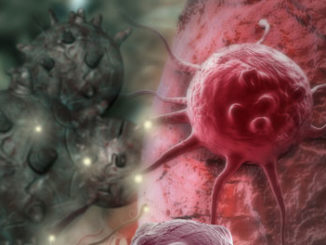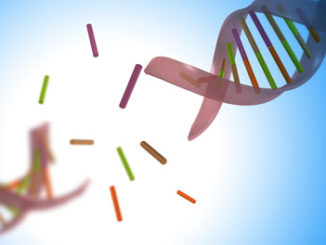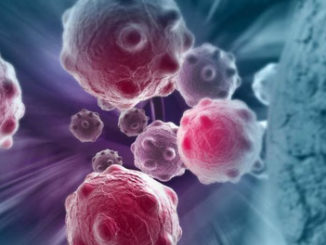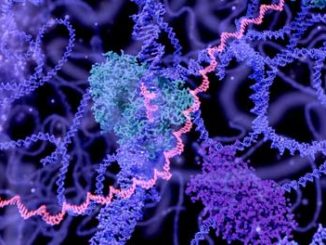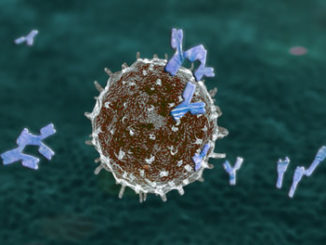Articles that explore the connection between epigenetics and diseases and disorders, including cancer, cardiovascular disease, diabetes, autoimmune disease, and more.
Connections between epigenetics and schizophrenia have been previously speculated, although no one knows for certain exactly how epigenetic tags may or may not control the development of the disease. Now, research conducted by a group of international scientists is helping us to understand the epigenetic and genetic components of schizophrenia in the developing human brain. Headed by researchers from the University of Exeter Medical School, Cardiff University and King’s College London, the study was published in Nature Neuroscience and details, [more…]
New research has found that a histone deacetylase (HDAC) inhibitor drug used to treat cancer could also help sharpen memory and improve one’s ability to learn a new language. It could even help rewire the brain and sustain neurons which could be of benefit to those suffering from Alzheimer’s and dementia. Researchers from Rutgers published a study in the Journal of Neuroscience that investigated a cancer treatment drug, RGFP966, and found that it had other positive effects that were previously [more…]
When the flu hits, it typically hits hard and fast. At first, you might only notice a slight cough and some sniffles and then, before you know it, you’re unable to get out of bed. The fever, sore throat, chills, muscle aches, and overall exhaustion take over your body and you’re done for — at least for a few days, if you’re lucky. Influenza (aka “the flu”) is a dreadful virus that’s seriously contagious and seemingly unavoidable for some. In [more…]
UK scientists from The University of Birmingham have discovered how certain cancer cells can adapt and render cancer drugs ineffective. These drugs, known as histone deacetylase (HDAC) inhibitors, are designed to disrupt cancer cells’ genetic controls. Their research, published in Epigenetics and Chromatin, may help create new therapies focused on preventing tumors from overcoming HDAC inhibitors (HDACi). Genes can be switched on or off via molecular tags that attach to DNA and transfer signals to tell the cell how to [more…]
New research has helped to clear up the function of a well-known tumor suppressor gene, RB, which prevents aberrant cell growth. Researchers from the University of Illinois at Chicago and Universitat Pompeu Fabra in Barcelona have found that pRb, or retinoblastoma protein, is a tumor suppressing protein encoded by RB that maintains proper functioning of a cell’s metabolism. By epigenetically modifying histones, pRb works to control tumor cell growth. The study was published in Genes and Development. Tumor suppressor proteins [more…]
DNA damage occurs frequently to cells as a result of normal cellular processes, but one of the worst genetic malfunctions that can occur is DNA double-strand breaks, or DSBs. This can lead to cancer and increased resistance to cancer therapy. New research from scientists at The University of Texas MD Anderson Cancer Center reported their findings regarding histone modifications, the cause of DNA double-strand breaks, and possible ways they can be fixed. Their research was published in Nature Cell Biology. [more…]
A significant advancement in cancer research was presented in a recent study conducted by scientists from Cornell University, University of Chicago, and Houston Methodist Hospital. The researchers demonstrated that a specific protein known as a cell surface receptor can cause immune cells to attack malignant tumors as opposed to protecting them via an epigenetic mechanism known as histone deacetylation. The research was published in Nature Communications. CD4+ T-cells, also known as CD4 or helper T-cells, are crucial to the immune [more…]
What if those who are resistant to insulin but don’t have diabetes could help prevent themselves and others from developing the disease? Researchers from Virginia Tech have discovered a biomarker in those who are pre-diabetic that could prevent them and potentially others from getting type 2 diabetes. The researchers uncovered that pre-diabetics, or people who are at high risk of developing type 2 diabetes, who do not respond to insulin had altered DNA in their mitochondria and had an increased [more…]
A person’s genetic code can contribute to their risk for developing non-small cell lung cancer (NSCLC), which accounts for about 85% of lung cancers. Epigenetics, the study of chemical tags that impact gene expression without altering the genetic sequence, is shown to also profoundly influence the development of cancer. In a study by Asan Medical Center researchers from The University of Ulsan College of Medicine in Korea, chromatin immunoprecipitation (ChIP)-on-chip assays and other techniques were used to investigate the epigenetic [more…]
For the very first time, epigenetic alterations have been linked to common variable immunodeficiency (CVID), the most commonly diagnosed primary immunodeficiency that leads to a decrease in antibodies and an increase in developing an infection. Scientists at the Bellvitge Biomedical Research Institute (IDIBELL) and La Paz Hospital (IDIPAZ) in Spain looked at monozygotic twins and measured epigenetic differences, specifically DNA methylation levels, between one twin with CVID and the other without the disease. The group of researchers, directed by Dr. [more…]






